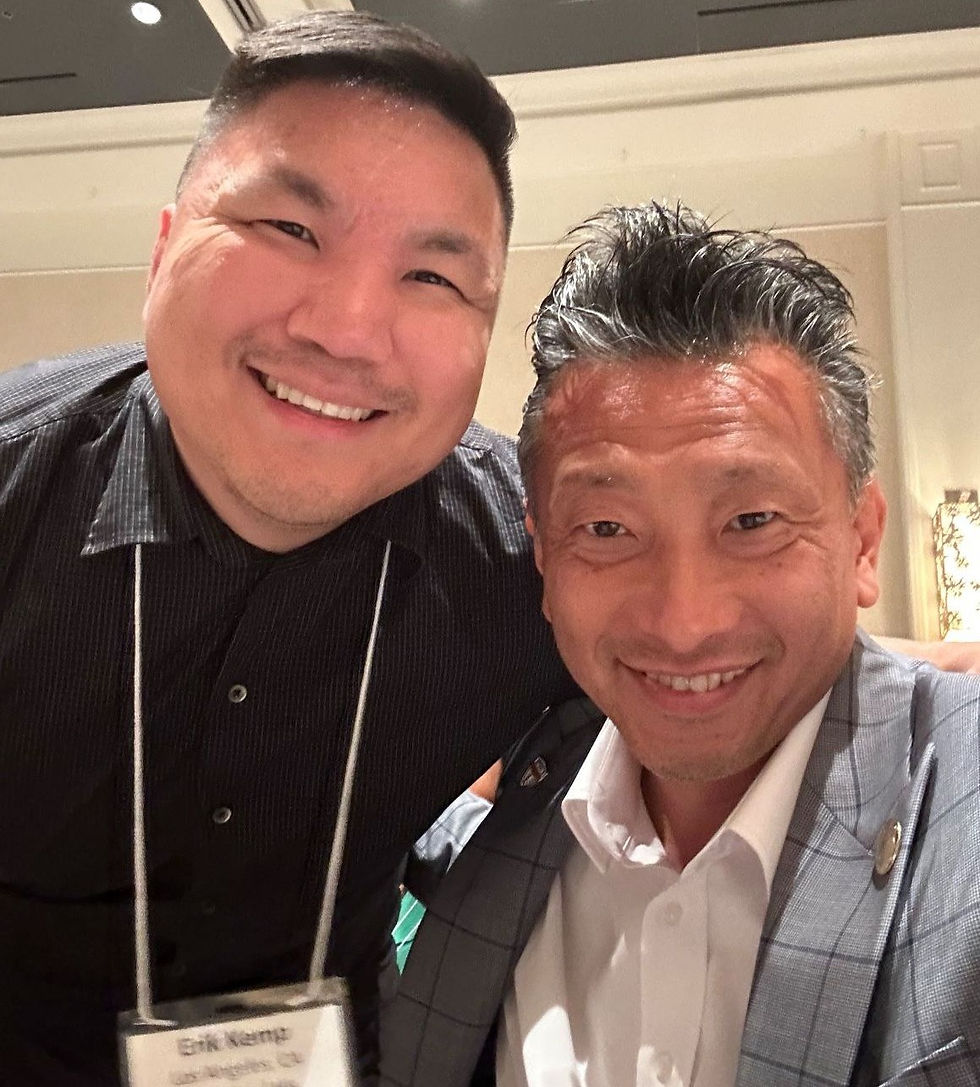How I Met The Lost Boys Of Sudan (On The Way To KAAN)
- katie34549
- Sep 2, 2014
- 4 min read
A guest post by Katie Jae Naftzger, LICSW, a KAAN presenter, member of KAAN’s Advisory Council, and family therapist, adoption specialist, speaker, and consultant who writes at http://adoptiontherapyma.com.

Where are you from?
This question follows adoptees everywhere. Where are you from? It’s a difficult question to answer. Why? Well, for one, the question itself is on the confusing side. If the question was, “where were you born” or, “where do you live” or, “what is your racial/cultural identity,” at least the question would be clearer. I mean, we may not want to answer these questions either, but at least we could know what they were asking. Another reason we dislike this question, is because it can suggest “otherness” or “foreigner.” “Where are YOU from? As if, they’re from here and you’re not. And, also, especially for adoptees, it’s personal. In this exchange, we end up inevitably telling them that we’re adopted, even though they are and will most likely continue to be… strangers. Given all of this, I try hard to avoid asking that dreaded question, “Where are you from?”
It was the summer of 2013, I had arrived in Grand Rapids, from Boston for the Korean-American Adoptee Network Conference, rushing to the annual advisory council meeting. I was pumped, ready to get into the nitty gritty. Let’s get those conversations going, I thought to myself. This is why I’m here.
I spotted a cab and popped my head in. Along with the guy in the driver’s seat, there was another guy in the front seat. “Where are you going?” “The Amway Grand Plaza Hotel.” “We can take you there. I’m training him.” They were dark-skinned, with accents, and were friendly and polite. I hesitated for a split-second, shrugged my shoulders and we were off.
We made polite conversation, I thought to myself, “They don’t sound Haitian… but, could they be the lost boys of Sudan? I don’t know why I thought that, I’ve never thought that about anyone before, but I felt pulled to know for sure.
The Lost Boys Of Sudan are a group of over 20,000 boys who traveled to the United States as a result of the war, from 1983-2005 (http://en.wikipedia.org/wiki/Lost_Boys_of_Sudan).
And, then I thought, “What am I thinking? Am I really going to ask where they’re from? How hypocritical, really! How many times have I been asked this by strangers? I’ve lost count. And, how many times have I been the butt of other people’s grossly inaccurate assumptions? A number of times. Am I really going to do this? Am I really going to ask, where they’re from? And, then, I thought, “What’s the worst that could happen?” They’ll think I’m a stuck-up insensitive well-off girl who is “curious” about them?” I knew that I could make a complete fool out of myself, but, that was a risk I decided to take. Maybe because I was in that space, to talk about race, diversity, identity… or, maybe not.
I cleared my throat, although my voice still sounded raspy and peppy, and leaned in from the back seat, as I’m prone to do.
“So…where are you guys from?”
Now, just to be clear, if they had answered, “Michigan” that would have been that. But, they didn’t. They said, “Africa.” Hmm, okay. Now, what do I do? I wasn’t sure, but it seemed too late to turn back now. I cleared my throat, again. this time my voice was a little less raspy. “Which country in Africa?” The driver answered, “Sudan.”
Then, I asked, “Are you the lost boys of Sudan?” I’m aware that the question itself doesn’t even really make sense. I know that they are not all of the lost boys of Sudan, but I couldn’t figure out how to say that. I told my 8 y/o daughter about this, and she said, smiling, “So, they were all there! There were a thousand steering wheels!” But, she knew what I really meant, as they did, and said that, yes, that was true.
In a documentary about The Lost Boys Of Sudan, there was a scene where the son reunited with his mother after many years. It stayed with me, because of the parallels it had to the “lost and found” experience that adoptees, particularly international adoptees go through. Also, just as they came here as a result of the war, Koreans started adopting as a result of a war, a different war, but a war, nonetheless. I explained that I was here to present at this conference, and that over generations, there are large numbers of us who have grown up here. Our lives, as theirs did, all too often as the result of a tragedy, physical violence and emotional turmoil. And, many of us cannot find our parents of origin, and, some have.
They talked about their experience in Michigan, how different the culture was, the challenges of making friends and feeling connected, over the long haul. They talked about how long it’s been since they saw their parents, and how much they miss them.
It was a conversation that I’m glad I had. One that I won’t forget. When I asked, “Where are you from?” I was more than “curious,” I wanted to connect through similarities and appreciate our differences. Who knows, maybe our paths will cross again one day, but to know that our stories already have, well, that means a lot.




Comments